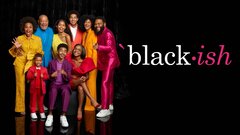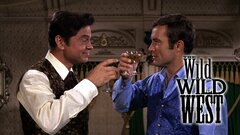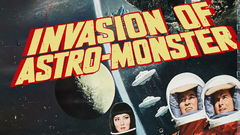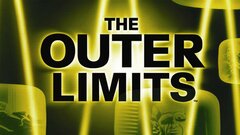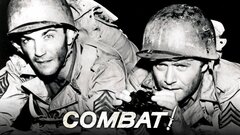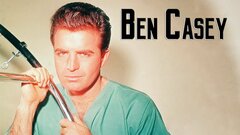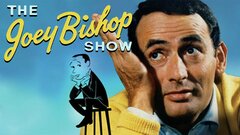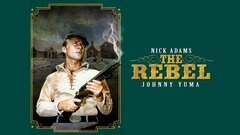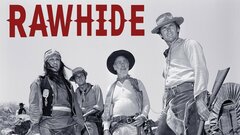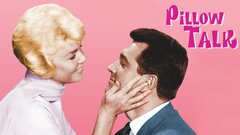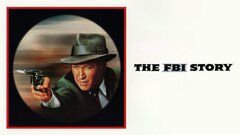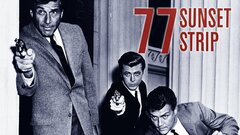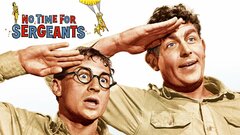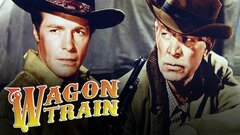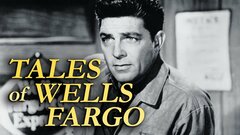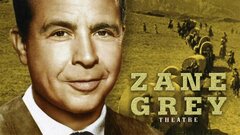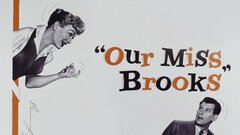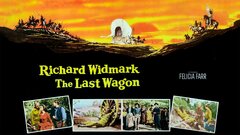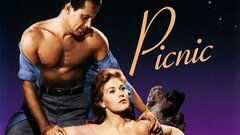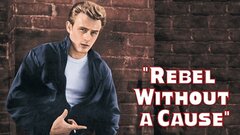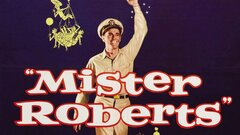Though never a major Hollywood star, actor Nick Adams nonetheless strove to become one through hard work, a will to succeed and cozying up to Hollywood stars. After landing a small role in "Mister Roberts" (1955), Adams struck up a friendship with James Dean and had a small part in "Rebel Without a Cause" (1955).
Following Dean's sudden death in late 1955, Adams capitalized on their friendship to gain publicity, while also glomming onto Elvis Presley during the King's movie debut, "Love Me Tender" (1956). From there, Adams ingratiated himself into any social circle he could, which typically paid off with guest starring roles on multiple television shows and supporting parts on the big screen.
Adams began taking matters into his own hands when he created and starred in his own series, "The Rebel" (ABC, 1959-1961), which earned critical acclaim during its three seasons on air. He continued to travel back and forth between television and film, landing another acclaimed role on the short-lived series "Saints and Sinners" (NBC, 1962-63) while appearing opposite Steve McQueen in "Hell is for Heroes" (1962).
He reached the height of his film career with his Oscar-nominated performance in "Twilight of Honor" (1963), but slipped into personal and professional travails following marriage difficulties and a worsening dependence on prescription drugs. Adams made a number of bad sci-fi films in Japan and the States before dying of a drug overdose in 1968, leaving behind a legacy that asked not what was, but what could have been.
Born on July 10, 1931 in Nanicoke, PA, Adams was raised by his coal miner father, Peter, who struggled to maintain a living and was always in debt. When Adams was five years old, his uncle died in a mining accident and his father packed all his family's belongings into an old jalopy. Without any destination in mind, Adams' father drove until he ran out of gas in Jersey City, NJ, where a man came across the destitute family and offered Peter a job as a janitor.
Adams' family lived in a small basement apartment for a time before finding their own home. Meanwhile, his mother, Catherine, found work at Western Electric. While in high school, Adams was a star baseball player who was offered a chance to play for the St. Louis Cardinals in the minor league system, which he turned down due to the low pay.
Instead, he worked briefly as a bat boy for the Jersey City Giants and allegedly hustled pool for money. When he was 17, Adams fell into acting after meeting up-and-coming actor, Jack Palance, while wandering into an audition for the play "The Silver Tassie." Palance sent him to a local theater group, where Adams landed his first part as Muff Potter in a production of "Tom Sawyer."
After spending a less-than-lucrative year as an actor in New York, Adams moved to Los Angeles, where he landed a job as an usher at the Warners Theater in Beverly Hills with hopes of being discovered by some Hollywood player. He relentlessly self-promoted himself, which led being fired from his usher's job, but nonetheless struggled to find paying work as an actor.
Adams landed his first professional gig with a role in the stage comedy "Mr. Big Shot," only to continue his struggles for a few years. He was finally able to join the Screen Actors Guild following a one-line role in George Seaton's "Somebody Loves Me" (1952), but was unable to use the film as a springboard to other parts since he had enlisted in the United States Coast Guard in June of that year. He returned to the States in 1954 and impressed director John Ford enough to be cast as Seaman Reber in "Mister Roberts" (1955), starring Henry Fonda.
He next landed the small role of Chick in "Rebel Without a Cause" (1955), which starred James Dean. The film icon soon became close friends with Adams during the shoot.
Aside from becoming friends, Adams regaled Dean by mimicking the star and others like Marlon Brando; he was even was asked to overdub some of Dean's lines for "Giant" (1956) after his sudden death, so spot on were his impersonations. Meanwhile, Adams began landing larger supporting roles, playing Bomber the paper boy in "Picnic" (1955), which starred William Holden and Kim Novak.
The following year, he had parts in the comedy "Our Miss Brooks" (1956), starring Eve Arden, and the Western "The Last Wagon" (1956), starring Richard Widmark. Also that year, Adams began a highly publicized friendship with Elvis Presley, which started while The King was in Hollywood making his film debut in "Love Me Tender" (1956).
Following a substantial supporting role in the Tommy Sands vehicle "Sing, Boy, Sing" (1958), Adams focused more on television, appearing in single episodes of "Wanted: Dead or Alive" (CBS, 1958-1961), "Cimarron City" (NBC, 1958-59), "Letter to Loretta" (NBC, 1953-1961) and "Steve Canyon" (NBC, 1958-59).
Back on the big screen, he co-starred opposite Rock Hudson and Doris Day in their ultimate romantic comedy, "Pillow Talk" (1959), a major box office hit that earned five Academy Award nominations. In 1959, Adams had his most significant television part when he helped create "The Rebel" (ABC, 1959-1961), on which he played Johnny Yuma, a wandering ex-Confederate soldier who is haunted by memories of the war and searches the American West for inner peace.
Adams was actively involved in a number of aspects of the show, including the writing, but in the end "The Rebel" lasted a scant three seasons before being cancelled. Also at the time, Adams married former child star Carol Nugent, with whom he had a turbulent relationship despite the marriage lasting from 1959-1965. They had two children, Allyson and Jeb, only to see their marriage deteriorate when Adams became unable to land lucrative parts in the mid-1960s.
Meanwhile, Adams followed "The Rebel" with episodes of "General Electric Theater" (CBS, 1953-1962) and "The Dick Powell Show" (NBC, 1961-63), before returning to movies with a supporting turn as a Polish refugee in Don Siegel's World War II drama, "Hell is for Heroes" (1962), starring Steve McQueen.
He jumped back to series television with the short-lived, but critically acclaimed drama "Saints and Sinners" (NBC, 1962-63), which was a spin-off of "The Dick Powell Show." He revived his role from both those shows for another spin-off, "Burke's Law" (ABC, 1963-65), before landing guest appearances on "Combat!" (ABC, 1962-67), "The Reporter" (CBS, 1964), "Rawhide" (CBS, 1959-1966) and "Ben Casey" (ABC, 1961-66).
On the big screen, he reached his high-water mark with an Academy Award nomination for Best Supporting Actor in "Twilight of Honor" (1963), playing a disreputable murder suspect who does his lawyer (Richard Chamberlain) no favors in taking on his case.
In 1965, while he was going through marital difficulties with Nugent, Adams - who had sworn never to make a film overseas - traveled to Japan to make a number of sci-fi epics, starting with "Frankenstein Conquers the World" (1965), in which he played a radiologist in Hiroshima contending with a giant-sized Frankenstein monster.
He went on to star in the sixth Godzilla movie, "Godzilla vs. Monster Zero" (1965), before traveling to England to make the H.P. Lovecraft-inspired horror flick "Die, Monster, Die!" (1965).
By the mid-1960s, Adams' personal and professional lives were in shambles. Though briefly reconciling with Nugent after publicly declaring his intention to leave her while on "The Les Crane Show," the couple split for good in 1966 under acrimonious circumstances that included a bitter fight over custody of their children, which Nugent ultimately won.
Meanwhile, Adams had developed a prescription drug habit over the years that had worsened at this time due to his mounting troubles, which included an inability to secure quality work. He made appearances on "The Wild Wild West" (CBS, 1965-69), "The Wonderful World of Disney" (1954-2008), "The Monroes" (ABC, 1966-67) and "Hondo" (ABC, 1967), before making a trio of forgettable low-budget indies, "Fever Heat" (1968), "Los Asesinos" (1968) and the notoriously bad "Mission Mars" (1968).
After finishing "Los Asesinos," Adams traveled to Rome to make "Murder in the Third Dimension," only to discover that the film was not going to be made. Soon after learning the distressing news, Adams returned to America and was found dead in his Beverly Hills on Feb. 7, 1968 of an apparent overdose from prescription drug intoxication. He was 36 years old.
Though his death was ruled neither an accident nor suicide, some speculated that Adams may have been murdered, though there was never any evidence or motivation for such a crime. Meanwhile, others reexamined his wild life and speculated that Adams may have been homosexual, due in part to his close relationships with James Dean and Elvis Presley.
While rumors swirled, there was never anything remotely conclusive to such claims and his sexuality remained as mysterious as his sudden death.
By Shawn Dwyer
